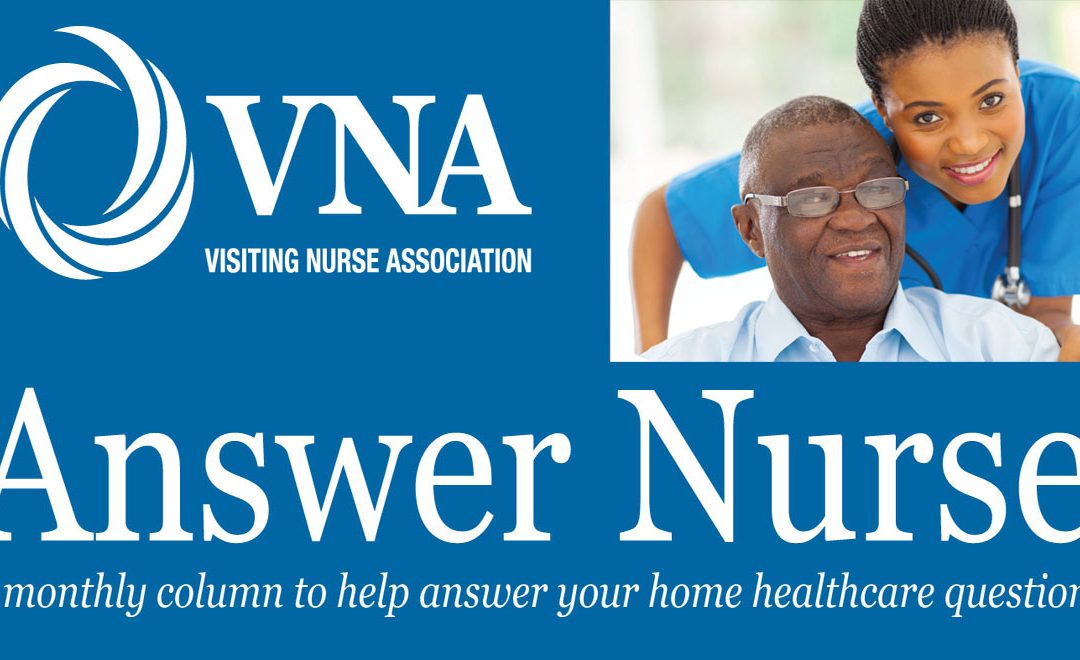VNA Answer Nurse
Being a caregiver is a very challenging job in every way: mentally, emotionally and physically. And during the holidays, it may become even more challenging. Below are frequently asked questions and answers on this topic.
Q: Caring for my elderly parents falls on me and another sibling, leaving our two other siblings doing nothing—they always have “more important” things to do. My one sister and I have accepted this, except around the holidays; we could really use the extra help then. Any suggestions?
A: Dealing with family, particularly around the holidays, can be stressful. And when you add in caring for your parents, it’s quadruple that. A good place to start would be to set up a meeting, in-person or zoom. Be sure to have a set of talking points and be clear on what your main objective is; do you want help for one day? One week? One month? And also provide a visual timeline that clearly shows all the time you and your other sibling have been caring for your parents. In a sense, you should approach it almost like you would a business meeting, because that will help minimize charged emotions. And, if that meeting does not go well, consider inviting a mental health counselor qualified in family dynamics to participate in a follow-up meeting as a mediator.
Q: My wife’s a caregiver and during the holidays, a time when she used to be extra happy, she’s gotten less and less so due to the stress of her job. Is there anything I can suggest for her to do to lessen the stress?
A: Caregiver burnout is a real thing. Below are some tips to help prevent this from happening (paste in on the fridge so your wife can read it every day).
TIPS FOR CAREGIVERS DURING THE HOLIDAYS
- Practice self-love – and keep it simple: ‘Practice self-love’ may sound corny, but it’s imperative to take care of your physical and mental health. You’re not only helping yourself but improving the quality of care for those who depend on you. So, make sure you take time for you. This could mean doing things as simple as setting aside enough time to savor your cup of coffee in the morning and carving out time to take a daily walk outside, enjoying nature and making your body smile.
- Start a new tradition: Sometimes our old traditions just don’t fit our current lives. Give yourself permission to create new traditions. For example, if you’re extra sleep deprived this holiday season, instead of hosting your annual Christmas party, ask everyone to meet out somewhere, maybe a favorite restaurant for a casual get-together.
- You can ask for help: It’s okay to ask others for help when you’re feeling wiped out. As a caregiver, it can be difficult to do, but remember the way you can perform your job optimally is by feeling your best.
- Stay positive: Practice positive affirmations. You can create your own or Google ‘positive affirmations” and a gazillion websites will pop up. Practicing these a few times a day, beginning in the morning, can make a small, but significant difference in feeling more upbeat.
- Practice self-care: Now is a good time to splurge a little – on yourself. Get a massage or pedicure or whatever it is that feels like a treat to you.
- Connect with caregivers: Connecting with fellow caregivers is extremely important and therapeutic. They’ll be able to identify and empathize with any travails you’re having at work and emotions you carry over from work.
Q: As a caregiver, I’ve found that around the holidays many of my patients start to become more stressed and start asking a lot of questions about services I don’t have the answers for. Do you know of any reputable resources geared toward elder care?
A: The Florida Department of Elder Affairs operates numerous community-based services that focus on the well-being, safety and independence of Florida’s seniors. Information on these services, including the Adult Care Food Program, Community Care for the Elderly, the Senior Companion Program and more can be accessed via the Elder Helpline. You can reach them by calling (800-963-5337) or visit elderaffairs.org.
This information is for educational purposes. Please consult your physician for any medical issues. The Visiting Nurse Association (VNA) is committed to bringing trusted and quality home care to Brevard County patients. For more information about VNA services, call 321-752-7550 or visit www.vnatc.com.


Recent Comments